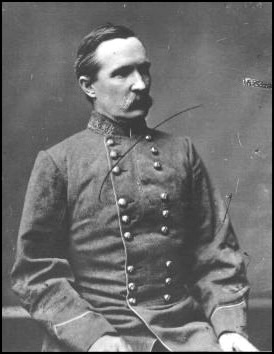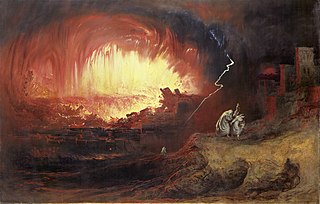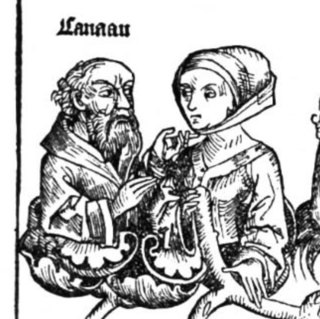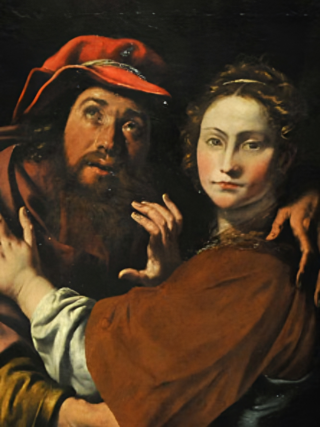Related Research Articles

Jacob, later given the name Israel, is a patriarch regarded as the forefather of the Israelites, according to Abrahamic religions such as Judaism, Christianity and Islam. Jacob first appears in the Book of Genesis, originating from the Hebrew tradition in the Torah. Described as the son of Isaac and Rebecca, and the grandson of Abraham, Sarah, and Bethuel, Jacob is presented as the second-born among Isaac's children. His fraternal twin brother is the elder, named Esau, according to the biblical account. Jacob is said to have bought Esau's birthright and, with his mother's help, deceived his aging father to bless him instead of Esau. Later in the narrative, following a severe drought in his homeland of Canaan, Jacob and his descendants, with the help of his son Joseph, moved to Egypt where Jacob died at the age of 147. He is supposed to have been buried in the Cave of Machpelah.

Noah appears as the last of the Antediluvian patriarchs in the traditions of Abrahamic religions. His story appears in the Hebrew Bible, the Quran and Baha'i writings, and extracanonically.

Sarah is a biblical matriarch, prophet, and major figure in Abrahamic religions. While different Abrahamic faiths portray her differently, Judaism, Christianity, and Islam all depict her character similarly, as that of a pious woman, renowned for her hospitality and beauty, the wife and half-sister of Abraham, and the mother of Isaac. Sarah has her feast day on 1 September in the Catholic Church, 19 August in the Coptic Orthodox Church, 20 January in the LCMS, and 12 and 20 December in the Eastern Orthodox Church.

Leah appears in the Hebrew Bible as one of the two wives of the Biblical patriarch Jacob. Leah was Jacob's first wife, and the older sister of his second wife Rachel. She is the mother of Jacob's first son Reuben. She has three more sons, namely Simeon, Levi and Judah, but does not bear another son until Rachel offers her a night with Jacob in exchange for some mandrake root. Leah gives birth to two more sons after this, Issachar and Zebulun, and to Jacob's only daughter, Dinah.

Eber is an ancestor of the Ishmaelites and the Israelites according to the Generations of Noah in the Book of Genesis and the Books of Chronicles.

The Nephilim are mysterious beings or humans in the Bible traditionally imagined as being of great size and strength, or alternatively beings of great power and authority. The origins of the Nephilim are disputed. Some, including the author of the Book of Enoch, view them as the offspring of rebellious angels and humans. Others view them as descendants of Seth and Cain.

Mahalalel is an Antediluvian patriarch named in the Hebrew Bible. He is mentioned in the Sethite genealogy as the grandfather of Enoch and subsequently the ancestor of Noah.
The Hittites, also spelled Hethites, were a group of people mentioned in the Hebrew Bible. Under the names בני-חת and חתי they are described several times as living in or near Canaan between the time of Abraham and the time of Ezra after the return of the Jews from the Babylonian exile. Their ancestor was Heth.
Clopas is a figure of early Christianity. The name appears in the New Testament, specifically in John 19:25:
Near the cross of Jesus stood his mother, his mother's sister, Mary the wife of Clopas, and Mary Magdalene.

Henry Heth was a career United States Army officer who became a Confederate general in the American Civil War.

Vayeira, Vayera, or Va-yera is the fourth weekly Torah portion in the annual Jewish cycle of Torah reading. It constitutes Genesis 18:1–22:24. The parashah tells the stories of Abraham's three visitors, Abraham's bargaining with God over Sodom and Gomorrah, Lot's two visitors, Lot's bargaining with the Sodomites, Lot's flight, the destruction of Sodom and Gomorrah, how Lot's daughters became pregnant by their father, how Abraham once again passed off his wife Sarah as his sister, the birth of Isaac, the expulsion of Hagar, disputes over wells, and the binding of Isaac.

Chayei Sarah, Chaye Sarah, Ḥayye Sarah, or Ḥayyei Sara, is the fifth weekly Torah portion in the annual Jewish cycle of Torah reading. It constitutes Genesis 23:1–25:18. The parashah tells the stories of Abraham's negotiations to purchase a burial place for his wife Sarah and his servant's mission to find a wife for Abraham's son Isaac.

Canaan, according to the Book of Genesis in the Hebrew Bible, was a son of Ham and grandson of Noah, as well as the father of the Canaanites.

Henry Heth (1764-1822) was a Virginia officer and businessman. After settling in Chesterfield County, Virginia near Richmond circa 1759, he established and ran the Black Heath coal mines following the American Revolutionary War. During that conflict, Heth and his brothers served officers in the Continental Army and would become founding members of the Society of the Cincinnati. Heth became involved in many commercial activities in Richmond and Norfolk from the late 1790s to his death.

Captain John Heth was a Virginian naval officer and businessman in the coal mining industry.
Abraham is known as the patriarch of the Israelite people through Isaac, the son born to him and Sarah in their old age and the patriarch of Arabs through his son Ishmael, born to Abraham and Hagar, Sarah's Egyptian servant.

Rachel was a Biblical figure, the favorite of Jacob's two wives, and the mother of Joseph and Benjamin, two of the twelve progenitors of the tribes of Israel. Rachel's father was Laban. Her older sister was Leah, Jacob's first wife. Her aunt Rebecca was Jacob's mother.